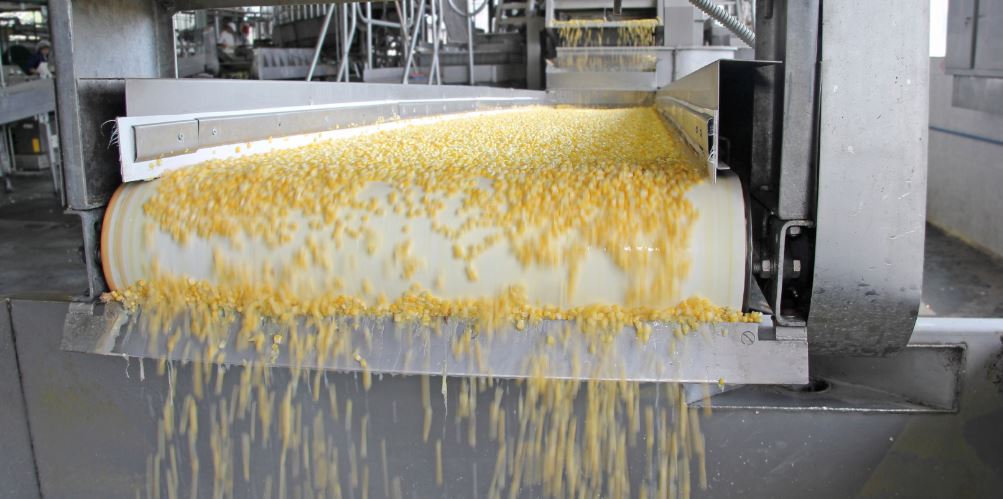Introduction
In the extremely managed food sector, contract manufacturers play a crucial duty in bringing items to market. These firms focus on generating and also packaging food on behalf of other business, allowing brands to concentrate on advertising and marketing and distribution. However, contract manufacturers must navigate a complex landscape of food labeling demands to guarantee compliance with Australian guidelines. This write-up provides understandings and also advice for agreement manufacturers operating in Australia, covering subjects such as contract food manufacturing, food security requirements, labeling needs, as well as more.
Contract Food Manufacturing: Fulfilling the Demand for Outsourcing
Contract food manufacturing has actually come to be significantly popular in the last few years as businesses look to outsource their production requirements. This setup enables business to take advantage of the proficiency as well as resources of customized food contract manufacturer makers while focusing on their core proficiencies. In Australia, contract food manufacturing is a thriving industry, with business providing a large range of solutions, including product development, formulation, product packaging, and quality control.
Understanding Food Safety and security Standards in Australia
Food safety and security is of vital significance in the agreement manufacturing industry. Agreement producers have to stick to stringent guidelines to make certain the safety and security and also honesty of the products they produce. In Australia, these requirements are set by Food Criteria Australia New Zealand (FSANZ) as well as enforced by state and also region regulative authorities.
The Good Production Practices (GMP) standards give a structure for making sure that food products are produced regularly and also fulfill top quality standards. Contract producers must execute durable quality control systems to follow GMP demands. This includes establishing treatments for active ingredient sourcing, manufacturing processes, storage, dealing with, product packaging, labeling, as well as distribution.
Meeting Classifying Needs: Trick Considerations
Accurate and also useful labeling is important for making certain customer safety and security as well as advertising transparency in the marketplace. Agreement manufacturers need to acquaint themselves with Australian labeling requirements to prevent expensive mistakes or potential lawful issues. Here are some crucial factors to consider when it pertains to food labeling in Australia:

1. Mandatory Tag Information
Australian food labeling legislations require particular details to be shown on item labels. This includes the product name, active ingredients checklist, irritant info, dietary info, and native land. Agreement makers should guarantee that all obligatory tag details is accurate as well as clearly legible.
2. Allergen Management
Allergen administration is a vital facet of food labeling in Australia. Agreement manufacturers have to have robust systems in position to avoid cross-contamination and accurately state the existence of allergens on product labels. This entails carrying out thorough threat analyses, implementing segregation steps, and regularly screening for irritant traces.
3. Nutritional Information
Nutritional info is a crucial consideration for customers when making purchasing choices. Australian food labeling laws call for contract manufacturers to supply accurate and also standard dietary information on their items. This includes the energy worth (calories), protein web content, fat content, carbohydrate web content, as well as any type of other pertinent nutrient information.
4. Country of Origin Labeling
Country of beginning labeling is another need that agreement producers need to adhere to in Australia. This includes plainly showing the country or countries where the item was made or expanded. The Australian Competitors and Consumer Payment (ACCC) offers standards on just how to meet native land labeling requirements.
5. Health And Wellness Claims and Marketing Messages
Contract makers need to additionally recognize the regulations surrounding health and wellness claims and also advertising messages on food tags. In Australia, any kind of cases made regarding the wellness benefits or homes of an item must be sustained by scientific evidence and also abide by details regulations set by FSANZ.
FAQs: Common Concerns Regarding Food Labeling Needs in Australia
What are the effects of non-compliance with food labeling demands in Australia? Non-compliance with food labeling requirements can lead to legal penalties, including fines or product remembers. It can additionally harm a brand name's online reputation as well as wear down consumer trust.

Are there specific labeling requirements for health food items in Australia? Yes, health food products have additional labeling needs in Australia. They must be accredited by an identified organic certifier as well as present the relevant certification logo.

Can agreement suppliers aid with item growth as well as formula? Yes, lots of contract producers use item growth as well as formulation services. They can aid in producing customized solutions that satisfy certain nutritional or dietary requirements.
What is the function of agreement producers in making sure food safety and security? Contract producers are responsible for executing robust food safety systems, consisting of GMP standards, to guarantee the security and stability of the items they produce.
Are there any kind of exemptions to food labeling needs for small businesses? Small companies might be eligible for certain exemptions or simplified labeling needs. Nonetheless, it is essential to speak with governing authorities or seek legal advice to figure out eligibility.
How can contract makers remain updated on adjustments to food labeling guidelines? Contract suppliers need to on a regular basis check updates from FSANZ and also other regulative bodies. They can additionally engage with market associations and attend pertinent workshops or workshops to stay informed.
Conclusion
Navigating food labeling demands in Australia is a complex job for contract makers. Conformity with regulations is vital to make certain consumer safety and security and also maintain trust in the marketplace. By recognizing the vital factors to consider detailed in this article, agreement makers can navigate the regulatory landscape efficiently while delivering high-grade products that fulfill sector requirements. Partnering with seasoned specialists who specialize in food labeling and compliance can additionally enhance an agreement producer's capacity to fulfill these needs successfully.